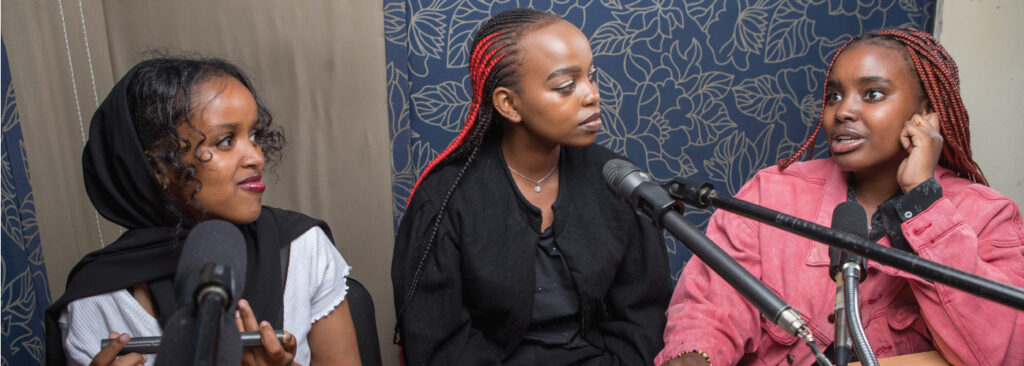
Philosophy of the Programme
The philosophy guiding this programme is founded on the conviction, belief and appreciation that the acquisition of knowledge must take cognizance of the ever changing media environment and tech-savvy era in order to produce graduates who can effectively address media issues and create content for the digital era in Kenya, Africa and the world. It is the conviction of Riara University (RU) that every person deserves information and this information can only be communicated effectively by adequately trained media practitioners. To achieve this goal, RU believes in nurturing professionally competent journalists who are ethical, morally and spiritually upright, of high integrity, dependable, committed, role models, critical and responsive to the fast changing society. RU believes that these professionally trained journalists will contribute positively by giving members of the public credible, accurate and timely information and by extension transform lives the people at the County, National, Regional and International levels. This programme is thus anchored on a practical orientation. It embraces the challenges which are faced by contemporary journalism where a journalist is today required to be part writer, photographer, video maker, and sound expert as well as being able to edit and assemble media in an online multimedia platform. The degree prepares graduates to become professional graduates for the digital platform as well as equip them with skills and competencies needed to work and excel in this rapidly changing field.
Rationale of the Programme
The advent of the information age has made communication an integral part of people’s lives. In Kenya, the advent of media liberalization in the 1990s leading to opening up of traditional media space has been followed by an unprecedented growth of radio and television as well as the expansion of the print media. The media continues to play important roles in education, informing and entertaining the population. The growth of multiple languages of broadcasting and the new media platforms has brought with it attendant opportunities and challenges. As an academic and practical field, understanding the media is central to the future development of the industry. Moreover, the role of journalism and communication in development cannot be gainsaid. In order to address different issues that confront Kenyan and African population in general, the mass and new media plays an important role. Communication intervention through both mediated communication and carefully designed programs have helped to promote not only societal change but also behaviour change.
The growth of new technologies including mobile telephony, digital platforms, social media and the internet has greatly altered information delivery. Using a combination of satellite, internet and cellular technologies, mass media content can now be delivered using computers and cell phones which can be accessed through social media sites such as Facebook, Twitter, Instagram, Netflix among others. These opportunities have allowed people to exchange information in critical areas of development such as financial exchange, health, education, environment, among others altering people’s lives in different ways. Furthermore, the developments noted above have been central to the opening up of the global space leading to participation of world population in different endeavours uninhibited by spatial considerations. The program provides students with an avenue to acquire and use skills and knowledge to be able to package content for the digital media environment in Kenya and beyond. Students will learn to report and create compelling content that is of human interest in politics, economy, educational science, health and environment, sports and entertainment. The programme draws from the UNESCO 2013 model for journalism training and education. The model envisions journalism education and training as a constantly changing practice of a particular type of communication in the public interest. This model is premised on two trajectories with regards to journalism education. Firstly it recognizes that journalism training has evolved and secondly that there is need to renegotiate the future of journalism education in the world taking into account the increasingly complex social, technological, political and economic context that journalism operates. In this regard, this programme responds to the national need for human capacity development in the area of new media and multimedia journalism.


